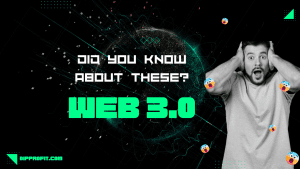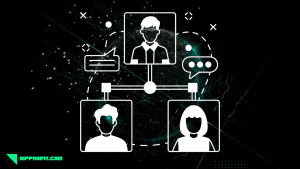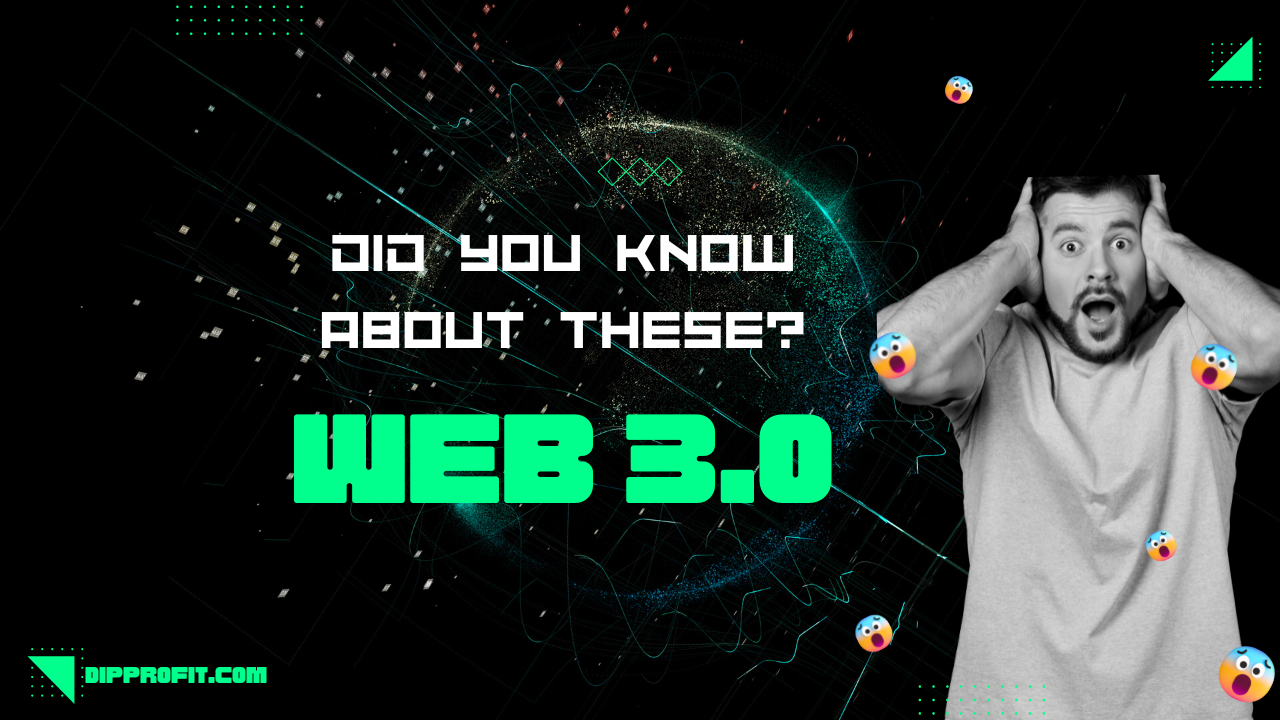
Are you familiar with web3?
It’s a new technology that has been rapidly gaining popularity due to its ability to change the way we interact with people and use the internet.
With it, new possibilities have opened up that weren’t available before, and as a result, many people are taking advantage of them without knowing much about them.
But before we dive into the hidden benefits of web3, we must first know what web3 is all about. Is it the metaverse? Is it crypto? What is this web3 exactly?
What is Web3?
Web3 is the evolution of the internet to enable intelligence and added functionality through blockchain, AI, and other technologies.
Web3 vs Web2: What’s the Difference?
Web3 is the most recent version of the World Wide Web, while web2 is its predecessor. Web3 places a greater emphasis on privacy and security, as well as decentralization and user control.
It also provides a better user experience by incorporating new technologies such as decentralized applications (dApps), smart contracts, and advanced cryptography techniques.
Web2 architectures, on the other hand, are largely based on centralized architectures that are vulnerable to hacking and data breaches.
Some web3 examples are:
- Blockchain technology
- Decentralized apps (DApps)
- Smart contracts

Web2 examples:
– Social media sites (Facebook, Twitter, etc.)
– Search engines (Google, Bing, etc.)
– Online forums (Reddit, Quora, etc.)
Is Web3 displacing Web2?
No. Web3 is not replacing Web2.
Web3 is a web extension, whereas Web2 is the current version of the web. Web3 is a more decentralized technology that provides more security and privacy than Web2, but it cannot completely replace it.
It is more likely that both will exist until one goes off the radar. Here are some benefits of web3 you probably didn’t know about:
Benefits of Web3 you need to know
It is called the next generation of the internet, developed to offer users more control over their data and online experiences. Here are some of the benefits of Web3 that not everyone knows about:
- Decentralized Applications: One major benefit of Web3 is that it provides a platform for developers to create decentralized applications that do not rely on a central authority or third-party intermediaries. This means that users have more control over their data and privacy.
- Interoperability: Web3 enables different decentralized applications to communicate with each other seamlessly, making it easier for users to access and use different services without having to switch between different applications.
- Tokenization: Web3 supports the creation of digital tokens that can be used to represent assets, such as currencies, property, and other real-world assets. This allows for new forms of value exchange and investment opportunities.
- Smart Contracts: Web3 supports the development of smart contracts, which are self-executing contracts that automatically enforce the terms of an agreement. This benefit of web3 creates new business models, such as decentralized autonomous organizations (DAOs). An example could be a car purchase where the payment is held in escrow until the buyer inspects the car and confirms its condition. The terms of the agreement are stored on a blockchain platform, ensuring transparency and security till the purchase is finally completed.
- Ownership and Control: Web3 gives users more ownership and control over their data and online experiences. This benefit of web3 allows users to choose which applications and services to use and can control how their data is shared and used.
- Community-driven Governance: Web3 communities enable community-driven governance, where users can participate in the decision-making process for decentralized applications and networks. This benefit of web3 promotes transparency and accountability in the development and management of these systems.
- Decentralized Storage Platforms: Another benefit of Web3 technology is that it allows the development of decentralized storage solutions that enable users to store and access data securely and privately without relying on centralized providers. This can reduce the risk of data breaches and hacks. Eg; Storj.
- Decentralized Energy Markets: Web3 can be used to create decentralized energy markets that enable peer-to-peer energy trading and management, reducing the reliance on centralized energy providers.Consumers in a decentralized energy market can buy and sell energy directly with one another, removing the need for centralized intermediaries or energy providers.One of the main advantages of decentralized energy markets is the ability to use energy resources more efficiently and in a sustainable way. Consumers with excess solar energy, for example, can sell it to other consumers in need, resulting in more efficient use of renewable energy resources. This can aid in the reduction of energy waste and the promotion of a more sustainable energy system.
- Digital Art and Collectibles: Web3 supports the development of digital art and collectibles markets that enable users to buy, sell, and own unique digital assets. This can create new opportunities for artists and collectors, as well as facilitate more secure and transparent transactions.
- Decentralized Education: Web3 can be used to create decentralized education platforms on different metaverses that enable users to access and share knowledge and skills without relying on traditional educational institutions. This alone can create new opportunities for lifelong learning and skill development.
Overall, the new internet is definitely here to offer significant benefits to users and developers alike, by enabling more open, decentralized, and user-controlled online experiences.
How Web3 is Transforming the Way We Live

Web3 is transforming the way we live and operate by introducing an entirely new way of using technology in our daily lives.
For example, Web3 applications are driving secure payments, improving identity verification, and streamlining data collection processes.
It is also allowing different businesses and companies to harness the power of blockchain technology to create transparent, efficient, and secure applications that can aid in global economic growth.
Web3 now gives users greater control over their data and assets, while also providing greater security and transparency. And as it continues to evolve, we can expect even more innovative applications and use cases to emerge.
Some Disadvantages of Web3
As there are benefits of web3, there are also some disadvantages to consider. Here are a few:
- Complexity: Web3 technology can be complex and difficult to understand, particularly for people who are not familiar with blockchain, and decentralized systems.
This can limit its adoption and make it challenging for people to understand. Luckily for you, we’re here to help.
2. Scalability: Because Web3 technology is still in its early stages, there are concerns about its scalability.
The number of transactions that current blockchain networks can process is limited, which may limit the growth and adoption of Web3 applications.
There are also lots of other benefits of web3 technology to consider but this blog post is basically centered to talk about it a little.
More on this will be discussed on our community platforms on Discord and Twitter. To join, click the links leading to the various social media platforms you’d like to connect with.
See you there!


